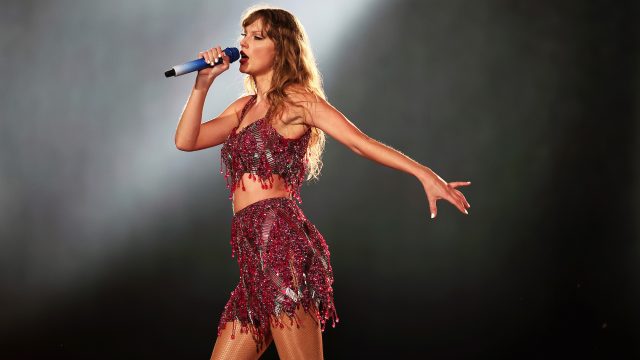
As the internet continues to dissect Taylor Swift’s latest album, its litany of metaphors and coded references to her personal life and previous relationships is coming under particular scrutiny.
With “The Tortured Poets Department” Swift has provided her fans with “information to piece together the story of someone they feel invested in personally as well as artistically”, said Emily Bootle on the i news site.
The album “couldn’t be more transparent about its subjects”, said Laura Snapes in The Guardian. But it’s hard to decipher whether Swift wanted the “highest-profile humiliation of her exes possible”, or whether it is an “admission of defeat” against the media, or simply “a naked attempt to harness the exposure” it will inevitably receive.
Swift is not the only artist releasing songs “laden with popcorn-chewing subtext”, said Snapes, with the likes of Ariana Grande and Sabrina Carpenter also having successful hits that appear to play into the current trend of “gossip” as “pop’s driving engine”. But do “knee-jerk responses” to albums like Swift’s say “more about our culture of misogyny” than her songwriting, asked David Robson on the BBC.
‘A tension between authenticity and artistic credibility’
Autobiographical-inspired art is not a new concept. Writers, poets and musicians over thousands of years have used lost love as the basis for masterpieces, but the “rise of mass media” in the 20th and 21st centuries has “only amplified speculation about the inspiration of modern writers”, said Robson.
But using one’s own life to write is often levied with creating a tension between “authenticity and artistic credibility”, with some suggesting that an “overreliance on personal experience devalues the writer’s creative talent”. These accusations often seem sexist, Robson said, given they are “levelled at women more than men”.
There is a clear contradiction in the way female artists are treated compared to male artists, said Bootle, with men often thought of as writing about their “muses” when it comes to past relationships, while women like Swift are only seen as referencing “exes”. In Swift’s particular case, this has seen her labelled as “obsessive and crazy, or an embarrassing overshare, or even slyly manipulative of her audience”.
While she is the “queen of easter eggs”, said Olivia Petter in The Independent, and there will “undoubtedly” be people “scavenging for tidbits of celebrity gossip”, Swift’s music itself will “ultimately transcend such low-level, insipid chatter”.
Yet it is one of several examples that shows “pop in a tricky spot”, said Snapes. “Too much gossip and you date your work; too little and fans lose interest.”
‘A vicious cycle’
This hunger for gossip and insight into an artist’s personal life comes from the “unprecedented position of seeing a celebrity’s life and work play out simultaneously” on social media, said Bootle.
In a previous age, without the almost “limitless information of the internet”, fans were left to assume much of what an artist was saying through their songs. Now, with Swift in particular, artists have “captivated an audience who desire personal information and self-narrative, and an idol to worship as well as an artist to engage with”. But it results in a “vicious cycle” in which the “role of celebrity and artist is blurred”, and fuels the thirst for both gossip and new artistic work.
This is not to say that “pop stars should avoid writing about their personal lives”, said Snapes, more that sustainable and “resonant pop steers between the two impulses”. “The Tortured Poets Department” has a “handful of moments like this”, she said, and those are the ones that “resound with real emotional truth”. Perhaps, even for pop music more widely, that is a “testament to leaving the picture incomplete”.
Taylor Swift’s new album has prompted a flurry of speculation over who she is referring to in her songs






